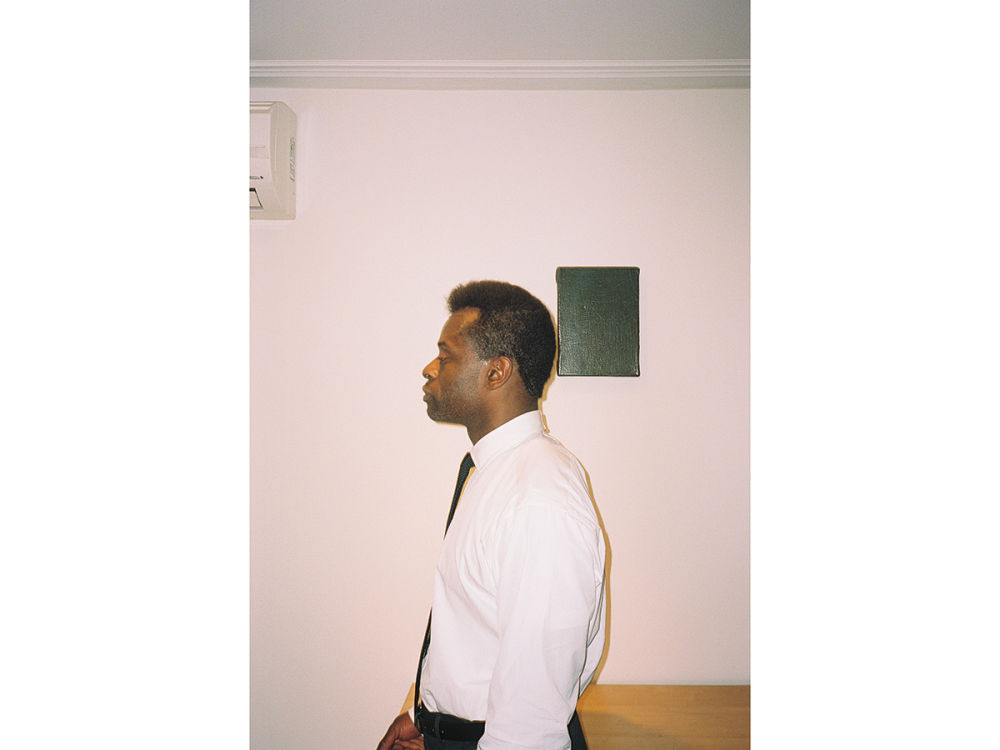In 1970 a novel by an unknown Albanian writer took literary Paris by storm. The General of the Dead Army was the story of an Italian general who goes back to Albania after the Second World War to find the bodies of the Italian soldiers killed there and take them back to Italy for burial. It was hailed as a masterpiece and its author was invited to France, where he was welcomed by French intellectuals as an original and powerful voice from behind the Iron Curtain. The General was translated into a dozen languages and inspired two films: one under the same title starring Michel Piccoli, the other Bernard Tavernier’s outstanding Life and Nothing Else (La Vie et rien d’autre).
Since then over a dozen of his novels and several collections of his poetry and essays have been translated into French, English, and other languages. He is considered one of the world’s major writers and has been suggested for the Nobel Prize several times. His French publishers are currently publishing his complete works in six volumes, in both French and the original Albanian. The first three have already appeared.
Ismail Kadaré was born and raised in the town of Gjinokastër in Albania. He read literature at the University of Tiranë and spent three years doing postgraduate work at the Gorky Institute in Moscow. The General was his first novel, published on his return to Albania in 1962, when he was twenty-six.
Kadaré has been compared to Kafka and Orwell, but his is an original voice, at once universal and deeply rooted in his own soil. For over forty years Albania lived under the Communist dictatorship of Enver Hoxha, whose particularly vicious brand of Stalinism lasted longer than in any other Eastern European country. Kadaré used a variety of literary genres and devices—allegory, satire, historical distancing, mythology—to escape Hoxha’s ruthless censorship and deadly reprisals against any form of dissent. His work is a chronicle of those terrible decades though the stories are often situated in the distant past and in different countries. Two of his most famous novels, The Palace of Dreams and The Pyramid, take place respectively during the Ottoman Empire and in ancient Egypt, while The Great Winter and The Concert clearly refer to Hoxha’s break with Russia under Khrushchev and with China after Mao’s death.
Ismail Kadaré left Albania in 1990 and settled in Paris. In 1996 he was elected an associate member of the French Academy of Moral and Political Sciences (L’Académie des Sciences Morales et Politiques), replacing Austrian-born British philosopher Karl Popper, who died that year.
He lives with his wife and daughter in the Latin Quarter, in a spacious and bright apartment overlooking Luxembourg Gardens; he often travels to Albania. This interview took place at his home in February and October of 1997, with telephone conversations in between.
Kadaré has the reputation of not suffering fools gladly, but I found him gentle, courteous, and rather patient with someone who does not know his country and its literature, both of which he cares about passionately. He speaks French fluently with a distinct accent in a quiet measured voice.
INTERVIEWER
You are the first contemporary Albanian writer to achieve international fame. For the majority of people, Albania is a tiny country of three and a half million inhabitants on the edge of Europe. So my first question concerns the Albanian language. What is it?
ISMAIL KADARÉ
Half of the Albanian population lives next door in Yugoslavia, in the region of Kosovo. In all, ten million people in the world speak Albanian, which is one of the basic European languages. I’m not saying this out of national pride—it is a fact. Linguistically speaking, there are six or seven fundamental families of languages in Europe: Latin, Germanic, Slavic, Baltic (spoken in Latvia and Estonia), and three languages without families, so to speak—Greek, Armenian, and Albanian. Therefore the Albanian language is more considerable than the little country where it is spoken, since it occupies an important place in Europe’s linguistic cartography. Hungarian and Finnish are not Indo-European languages.
Albanian is also important for being the only descendant of the ancient Ilyrians’ language. In antiquity there were three regions in southern Europe: Greece, Rome, and Ilyria. Albanian is the only survivor of the Ilyrian languages. That is why it has always intrigued the great linguists of the past. The first person to make a serious study of Albanian was the German philosopher Gottfried Leibnitz in 1695.
INTERVIEWER
The one Voltaire parodied in Candide as Dr. Pangloss, who said, “All is well in this the best possible of worlds.”
KADARÉ
Exactly. Yet Albania did not exist at that time as a separate entity; it was part of the Ottoman Empire like the rest of the Balkans, including Greece. But this German genius found the language interesting. After him, other German scholars produced long studies of Albanian—Franz Bopp for example, whose book is very detailed.
INTERVIEWER
What about Albanian literature? What is its origin? Is there an Albanian Dante, Shakespeare, or Goethe?
KADARÉ
Its sources are essentially oral. The first literary book in Albanian was published in the sixteenth century, and it was a translation of the Bible. The country was then Catholic. After that there were writers. The founding father of Albanian literature is the nineteenth-century writer Naim Frasheri. Without having the greatness of Dante or Shakespeare, he is nonetheless the founder, the emblematic character. He wrote long epic poems, as well as lyrical poetry, to awaken the national consciousness of Albania. After him came Gjergj Fishta. We can say that these two are the giants of Albanian literature, the ones that children study at school. Later came other poets and writers who produced perhaps better works than those two, but they don’t occupy the same place in the nation’s memory.
INTERVIEWER
The Turks took Constantinople in 1454, and then the rest of the Balkans and Greece. What was the impact of Turkish on Albanian?
KADARÉ
Hardly any. Except in the administrative vocabulary or in cooking—words like kebab, café, bazaar. But it had no influence on the structure of the language for the simple reason that they are two totally different machines, and one can’t use the spare parts of one for the other. The Turkish language was not known anywhere outside Turkey. Modern Turkish has been constructed by Turkish writers of the nineteenth and twentieth centuries, while the dry, administrative Turkish was not a living language and therefore could not have any influence on the other languages of the Ottoman Empire. I have met Turkish writers who have told me that they have problems with their language.
INTERVIEWER
On the other hand, a great deal of foreign vocabulary has entered Turkish—Persian, Arabic, French, among others. Before modern times, Turkish authors wrote in Persian, or in Arabic if the subject was theology.
KADARÉ
For me as a writer, Albanian is simply an extraordinary means of expression—rich, malleable, adaptable. As I have said in my latest novel, Spiritus, it has modalities that exist only in classical Greek, which puts one in touch with the mentality of antiquity. For example, there are Albanian verbs that can have both a beneficent or a malevolent meaning, just as in ancient Greek, and this facilitates the translation of Greek tragedies, as well as of Shakespeare, the latter being the closest European author to the Greek tragedians. When Nietzsche says that Greek tragedy committed suicide young because it only lived one hundred years, he is right. But in a global vision it has endured up to Shakespeare and continues to this day. On the other hand, I believe that the era of epic poetry is over. As for the novel, it is still very young. It has hardly begun.
INTERVIEWER
Yet the death of the novel has been foretold for fifty years!
KADARÉ
There are always people who talk a lot of nonsense! But in a universal perspective, if the novel is to replace the two important genres of epic poetry—which has disappeared— and of tragedy—which continues—then it has barely begun and still has two thousand years of life left.
INTERVIEWER
It seems to me that in your oeuvre you have tried to incorporate Greek tragedy into the modern novel.
KADARÉ
Exactly. I have tried to make a sort of synthesis of the grand tragedy and the grotesque, of which the supreme example is Don Quixote—one of the greatest works of world literature.






